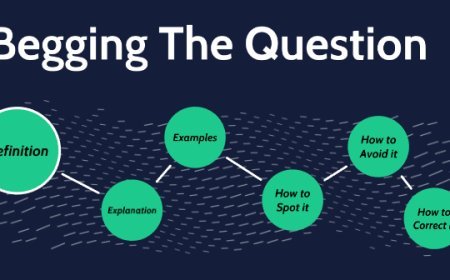General Intelligence "G"
For over a century, the concept of General Intelligence, often denoted as 'g', has stood as a cornerstone in the study of human cognition. Proposed by British psychologist Charles Spearman in the early 20th century, the 'g-factor' posits that a single, overarching mental capacity underlies and influences performance across a wide array of cognitive tasks.

This theory suggests that if you're adept at one intellectual challenge, you're likely to show competence in others, implying a common wellspring of mental horsepower. It's a powerful idea that has shaped our understanding of intellect, even as its precise nature and the wording used to describe it have sparked endless debate.
The Theory of a Singular Mind
Spearman's initial observations stemmed from his work on intelligence tests. He noticed that individuals who performed well on one type of cognitive task – say, a word puzzle – also tended to perform well on seemingly unrelated tasks, like a numerical reasoning problem or a spatial manipulation exercise. This consistent positive correlation led him to deduce the existence of a shared, fundamental cognitive ability: the 'g-factor'. According to this view, while specific tasks might also require "specific factors" (designated 's'), it's the general intelligence that provides the core mental energy for all intellectual endeavors.
The 'g' is often conceptualized as mental efficiency, processing speed, working memory capacity, or the ability to reason abstractly and solve novel problems. It's the cognitive engine that allows us to grasp complex ideas, learn from experience, adapt to new situations, and reason effectively. The words used to define 'g' often emphasize abstract reasoning and problem-solving, rather than specific knowledge or skills.
How 'G' Manifests in Cognition
In daily life and on standardized tests, 'g' manifests in various ways:
- Problem-Solving: The ability to quickly identify patterns, draw inferences, and devise solutions to new problems, regardless of their specific content. This might involve seeing the underlying logic in a sequence of words or numbers.
- Abstract Reasoning: Handling concepts that are not concrete or tied to direct experience. This is crucial for understanding complex scientific theories or philosophical arguments, where the wording can be dense and abstract.
- Learning Efficiency: The speed and ease with which new information is acquired, understood, and retained. A higher 'g' often means fewer repetitions are needed to master new words or concepts.
- Working Memory: The capacity to hold and manipulate multiple pieces of information in mind simultaneously, essential for following complex instructions or constructing logical arguments. Misunderstanding a single word can derail this process.
- Verbal Comprehension: A strong understanding of language, including vocabulary, reading comprehension, and the nuanced meanings of words and phrases. While this leans into verbal intelligence, 'g' provides the underlying processing power.
- Numerical Reasoning: The ability to work with numbers, perform calculations, and understand mathematical relationships.
Individuals with higher 'g' scores typically demonstrate greater adaptability, quicker learning, and more effective problem-solving across diverse domains. They often excel in academic settings and tend to be quicker to grasp the meaning and implications of complex wordings in various contexts.
The Enduring Influence of 'G'
The 'g-factor' has remained a highly influential concept for several reasons:
- Predictive Power: Research consistently shows that 'g' is a powerful predictor of academic success, occupational performance, and even certain life outcomes. Studies indicate that a higher 'g' correlates with faster learning in training programs and better performance in cognitively demanding jobs.
- Empirical Robustness: The statistical evidence for a general factor underlying diverse cognitive abilities is strong across different populations and cultures.
- Simplicity: It offers a relatively straightforward model for understanding intelligence, contrasting with multi-faceted theories.
Despite its predictive power, it's crucial to acknowledge the limitations and criticisms of the 'g-factor'. Critics argue that it oversimplifies the rich tapestry of human intellect into a single number, potentially overlooking unique talents and practical skills not captured by traditional tests. They contend that reducing intelligence to a solitary word like "general" fails to appreciate the myriad ways in which individuals can be smart. Furthermore, the reliance on standardized tests to measure 'g' has led to debates about cultural bias and the narrowness of what these tests truly assess.
Beyond the Score: A Broader Perspective
While the 'g-factor' provides a useful framework for understanding a core component of cognitive ability, modern psychology increasingly advocates for a broader view of intelligence. Theories like Gardner's Multiple Intelligences or Sternberg's Triarchic Theory supplement 'g' by highlighting the importance of specialized skills (like musical or interpersonal intelligence) and practical wisdom.
Ultimately, general intelligence represents a powerful, underlying cognitive engine. It equips us with the fundamental capacity for abstract thought, learning, and problem-solving, making us efficient processors of information, whether those are numbers, images, or carefully chosen words. However, a truly holistic understanding of human intellect requires appreciating 'g' not as the sole definition of intelligence, but as a vital part of a much larger, more diverse cognitive landscape. It's the bedrock, but not the entire building.
What's Your Reaction?
 Like
0
Like
0
 Dislike
0
Dislike
0
 Love
0
Love
0
 Funny
0
Funny
0
 Angry
0
Angry
0
 Sad
0
Sad
0
 Wow
0
Wow
0





















